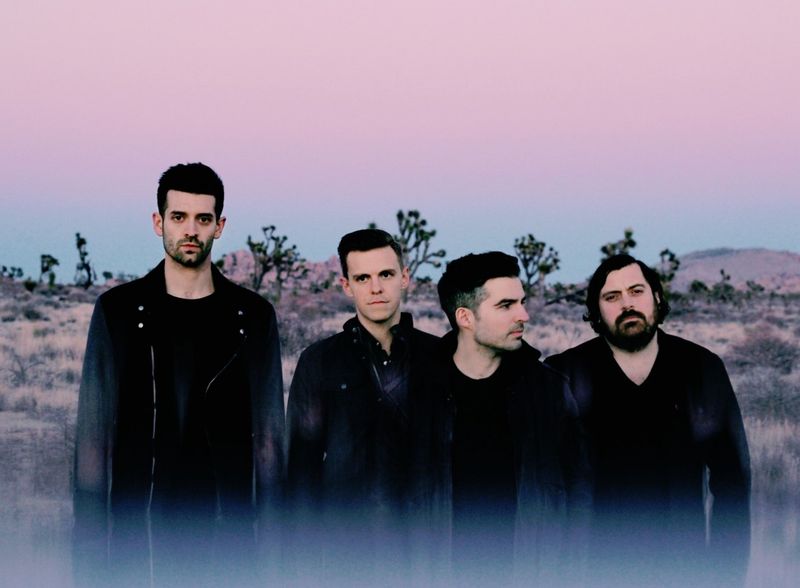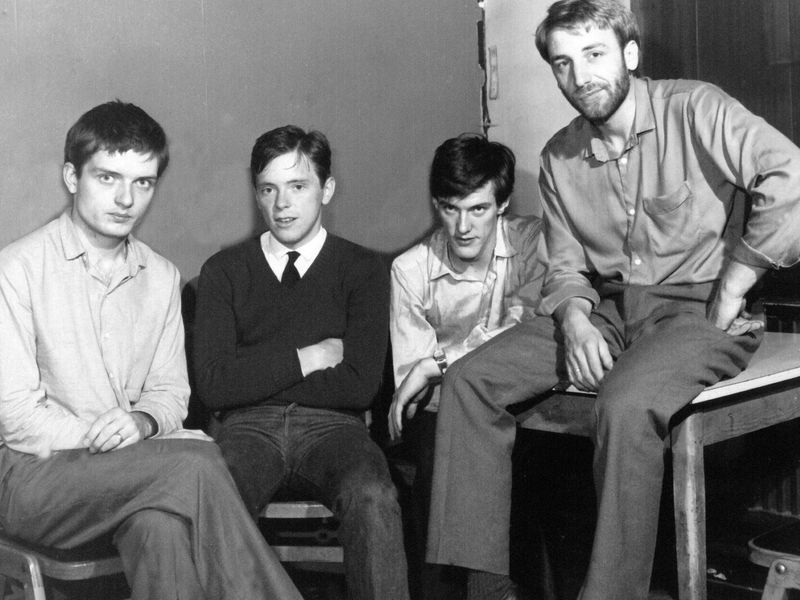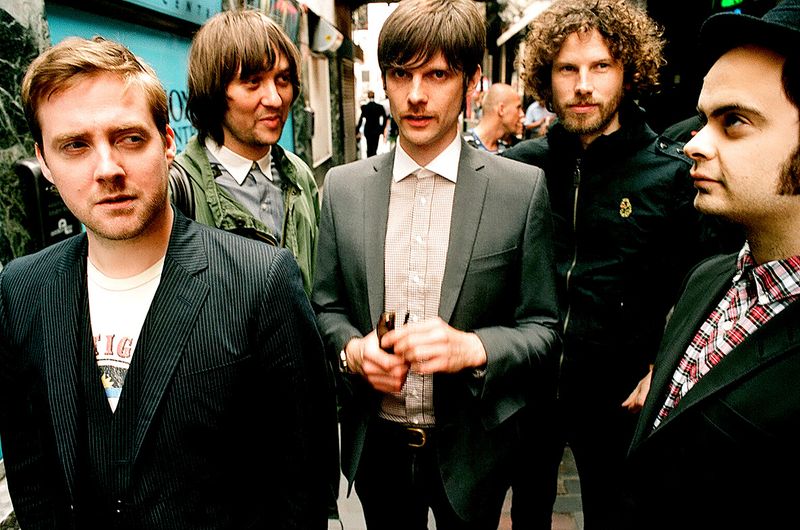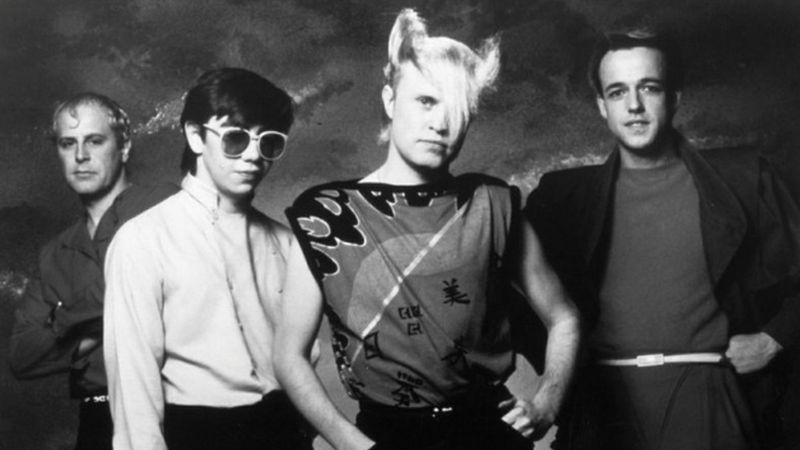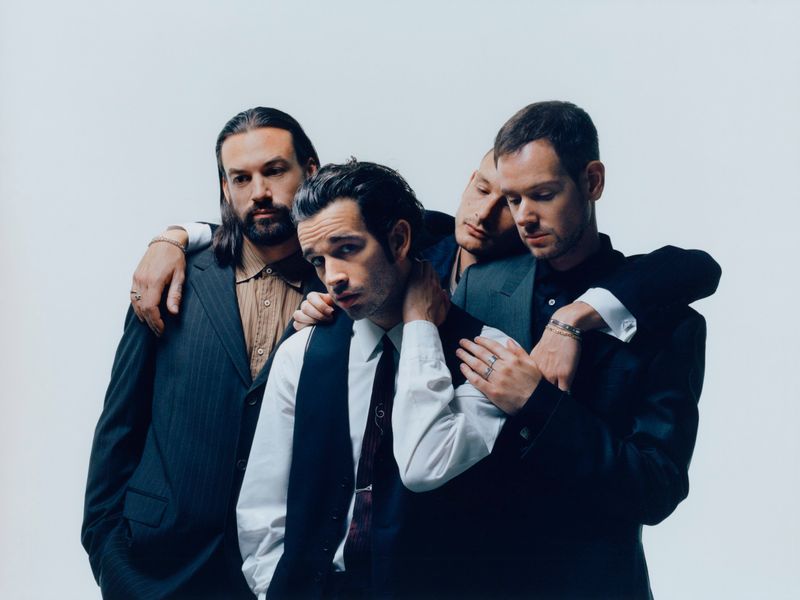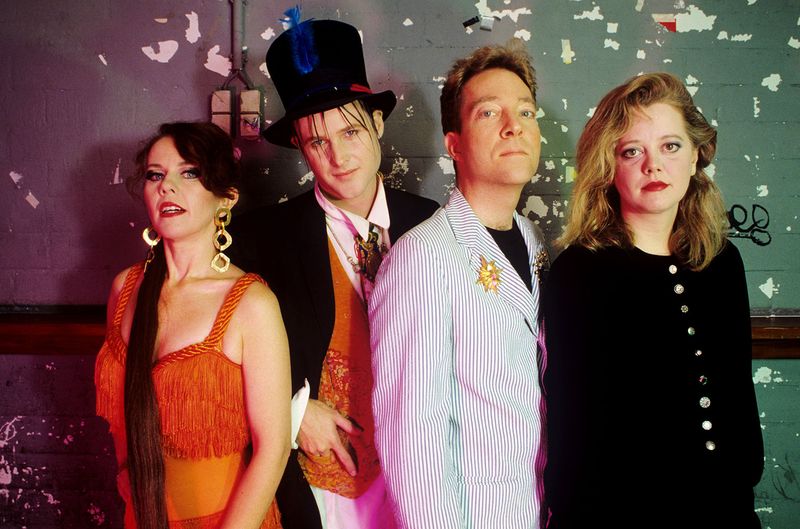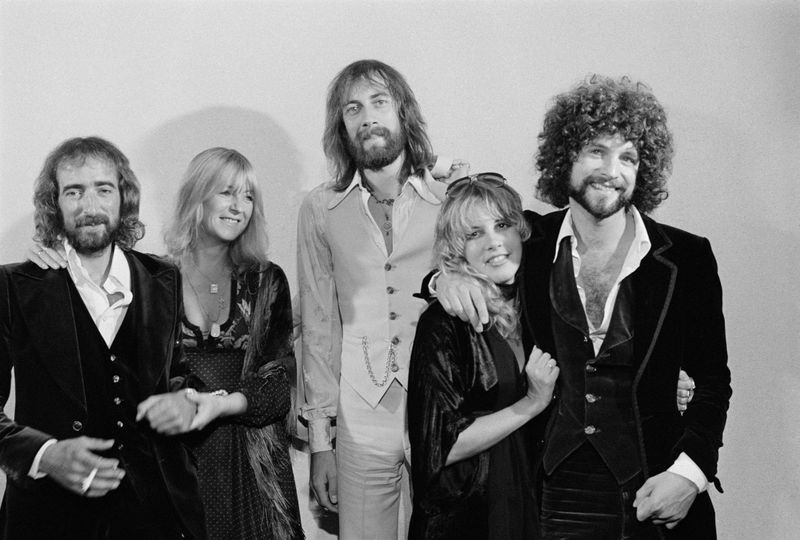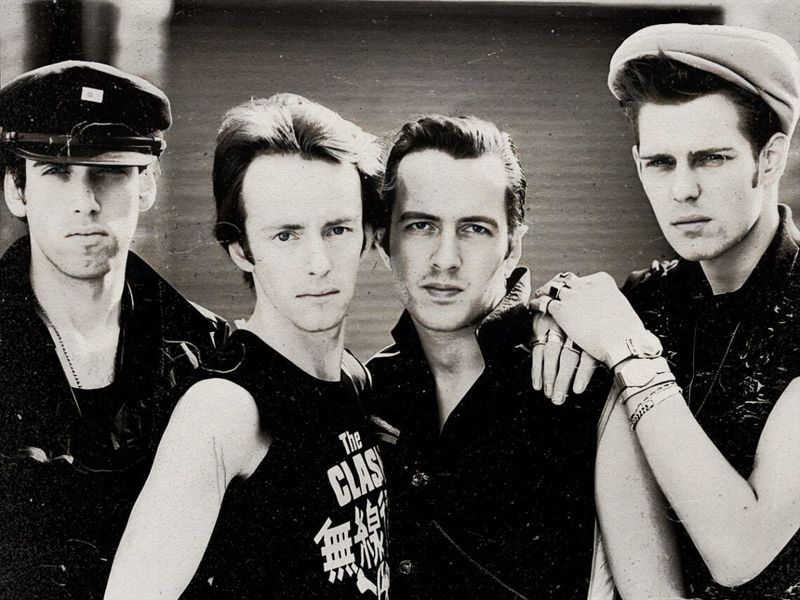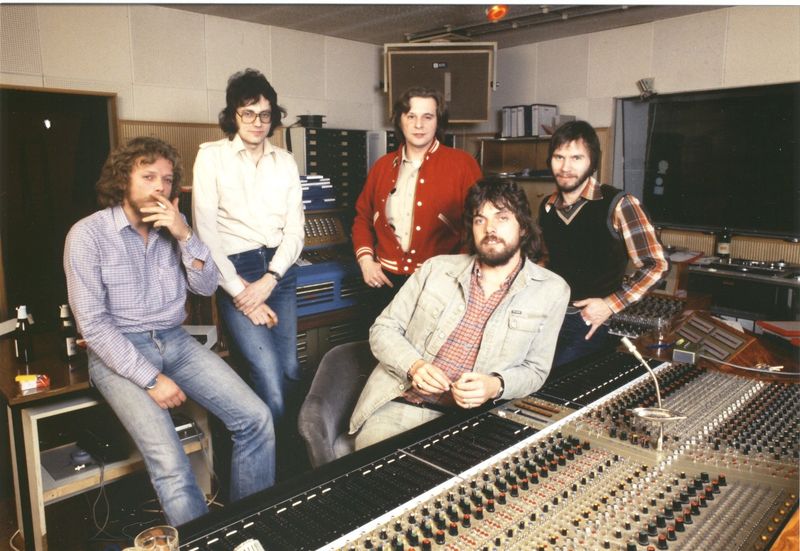Music and history often intersect in intriguing ways, and nowhere is this more evident than in band names inspired by historical events. These bands not only entertain through their music but also offer a nod to significant moments in history.
This list uncovers the fascinating stories behind 21 bands, each with a name rooted in a historical event.
From wars to revolutions, and everything in between, these bands show us that history can not only educate but also inspire creativity in unexpected ways. Let’s explore how these musical groups pay homage to the past through their names.
1. Franz Ferdinand
Franz Ferdinand, the Scottish band known for its post-punk revival sound, took its name from Archduke Franz Ferdinand of Austria. His assassination in 1914 was a pivotal moment that ignited the First World War.
The band’s choice of name reflects a connection to a significant historical turning point, symbolizing the chain of events that can result from a single action.
The name carries a weighty historical reference, yet the band infuses it with a modern twist. It serves as a reminder of how history continues to shape present and future narratives.
2. The Boxer Rebellion
The Boxer Rebellion was an anti-foreign, anti-imperialist uprising in China between 1899 and 1901. The band of the same name hails from London and channels the raw intensity of this historical conflict.
Their music reflects themes of struggle and resistance, echoing the rebellion’s fight against foreign intervention. By naming themselves after such a turbulent period, they emphasize resilience and defiance.
Listeners are encouraged to understand the historical context, providing a richer experience while engaging with their evocative soundscapes.
3. Atreyu
Though not directly named after a historical event, Atreyu takes its name from the heroic warrior in ‘The NeverEnding Story’, a tale that draws from historical themes of heroism and struggle.
The character embodies courage and perseverance, often associated with historical figures who faced insurmountable odds. The band’s music mirrors these epic tales, crafting narratives of personal and collective triumph.
While the name might not reference a specific historical event, it taps into timeless themes that resonate throughout history, offering inspiration and an emotional journey for listeners.
4. The Dandy Warhols
The Dandy Warhols cleverly play on the name of iconic artist Andy Warhol, a pivotal figure in the Pop Art movement of the 1960s. Though not a historical event per se, Warhol’s influence was transformative.
The band infuses their music with the same vibrant spirit that characterized Warhol’s art, challenging norms and celebrating creativity. Their name nods to a cultural revolution that forever changed the art world.
Through their sound and style, they pay homage to Warhol’s legacy, demonstrating how art and music can transcend time and remain relevant.
5. Joy Division
Joy Division took their name from the novel ‘House of Dolls’, which depicted ‘joy divisions’ – brothels in concentration camps during WWII. The band’s stark and haunting music reflects this somber source.
Their choice of name underscores themes of despair and existential reflection, often present in post-war Europe.
While the novel’s imagery is disturbing, Joy Division’s music captures the emotional turmoil and complexity of human experience. By exploring dark historical themes, they encourage listeners to confront uncomfortable truths and find beauty in the bleakest moments.
6. Kaiser Chiefs
Kaiser Chiefs derive their name from the South African football club, Kaizer Chiefs. Their energetic rock sound is infused with nods to cultural and historical influences.
The band’s name is a tribute to the vibrant spirit and cultural exchanges of South Africa, where global influences meet local traditions.
By choosing such a distinct name, Kaiser Chiefs celebrate diversity and the blending of cultures. Their music invites audiences to explore themes of identity and heritage, making history an integral part of their sonic journey.
7. Bastille
Bastille is named after the French prison stormed during the French Revolution on July 14, 1789. This event marks a pivotal moment in history, symbolizing the fight for freedom and justice.
The band’s music reflects the revolutionary spirit, blending anthemic melodies with introspective lyrics. Celebrating Bastille Day, known for its historical significance, infuses their identity with themes of liberation.
Through their dynamic sound, Bastille captures the essence of change, drawing parallels between past revolutions and contemporary societal shifts, encouraging listeners to reflect on personal and global transformations.
8. The Decemberists
The Decemberists take their name from the Decembrist revolt of 1825 in Russia, where officers led an unsuccessful uprising against Tsar Nicholas I. This historical moment is rich with themes of idealism and defiance.
Their music often explores narratives of struggle and rebellion, drawing parallels to the revolutionary spirit. Through storytelling, they weave historical references into modern contexts, engaging listeners with rich, layered compositions.
By embracing a name with such depth, The Decemberists invite audiences to reflect on history’s echoes in today’s world, fostering a connection between past and present.
9. The Velvet Underground
The Velvet Underground derived their name from a book about the secret sexual subculture of the early 1960s. Though not a historical event, it reflects the underground movements that challenged societal norms.
Known for their avant-garde sound, the band played a pivotal role in the counterculture revolution, which questioned traditional values and sparked change.
Their name symbolizes a movement towards greater freedom and expression, resonating with those who seek to break free from conventional constraints. The Velvet Underground remains influential, inspiring those who champion individuality and artistic exploration.
10. T. Rex
T. Rex, originally known as Tyrannosaurus Rex, took inspiration from the iconic dinosaur, a reminder of Earth’s ancient history. This prehistoric reference connects their music to themes of power and raw energy.
Their glam rock sound, led by the charismatic Marc Bolan, captured the imagination of a generation seeking liberation through music. By evoking the mighty T. Rex, the band emphasized themes of dominance and transcendence.
Their legacy endures as a tribute to the enduring allure of the past and the endless possibilities of reinvention, echoing the timeless appeal of both history and music.
11. Spandau Ballet
Spandau Ballet’s name is believed to refer to Spandau Prison in Berlin, noted for holding Nazi war criminals after WWII. This historical reference adds a layer of intrigue to their smooth, new wave sound.
Their music contrasts with the grim connotations of their name, creating a juxtaposition that intrigues listeners.
By choosing such a provocative name, the band invites contemplation on themes of redemption and reinvention. Spandau Ballet’s success underscores how historical references can enhance artistic expression, turning dark pasts into sources of inspiration and artistic exploration.
12. A Flock of Seagulls
A Flock of Seagulls took their name from the book ‘Jonathan Livingston Seagull’, an allegory about self-discovery and transcendence. While not a historical event, the themes resonate with historical quests for meaning.
Their synth-driven sound captured the spirit of the 1980s, a decade marked by technological and cultural shifts. The band’s name suggests a sense of exploration and discovery, mirroring the era’s dynamic changes.
Through their music, they encourage listeners to embark on their own journeys of self-realization, drawing parallels between literary inspiration and historical quests for freedom.
13. The 1975
The 1975 draws inspiration from the Beat Generation and the evolving cultural landscape of the 1970s. Their name signifies a nod to an era characterized by artistic exploration and countercultural movements.
Their eclectic sound blends genres, reflecting the diverse influences of the decade. By choosing this name, The 1975 pays homage to a period of significant social and cultural transformation.
Their music invites audiences to reflect on the spirit of rebellion and innovation that defined the 1970s, encouraging a deeper understanding of the connections between past and present artistic expressions.
14. Jethro Tull
Jethro Tull, the band, borrowed their name from the 18th-century agricultural pioneer who invented the seed drill. This historical figure revolutionized farming, much like the band redefined rock music.
With their signature flute-driven sound and complex compositions, Jethro Tull carved a unique niche in the music world. Their name reflects both innovation and tradition, qualities that resonate through their work.
By adopting the name of a historical innovator, the band underscores the power of creativity to transform fields, whether agricultural or musical, inspiring future generations to innovate and explore.
15. The B-52’s
The B-52’s name was inspired by the B-52 Stratofortress bomber, a symbol of post-WWII military might. Their upbeat, quirky sound contrasts with the aircraft’s turbulent history.
The band channels retro vibes and playful energy, inviting listeners to celebrate life and music. The name serves as a reminder of the complex interplay between joy and historical contexts.
Through their colorful performances, The B-52’s create an atmosphere of fun and nostalgia, proving that even the most serious historical references can inspire joy and artistic creativity.
16. Fleetwood Mac
Fleetwood Mac’s name pays tribute to two early band members, Mick Fleetwood and John McVie, blending personal history with musical evolution. Although not named after a historical event, it carries the weight of their shared journey.
The band’s enduring legacy is marked by a rich tapestry of sounds, reflecting their evolution through time. Their name symbolizes unity and collaboration, resonating with fans across generations.
Through their music, Fleetwood Mac captures the essence of change and resilience, encouraging listeners to embrace life’s complexities and the enduring power of creative partnerships.
17. The Clash
The Clash, synonymous with punk rock rebellion, chose a name that reflects conflict and change. Although not a specific historical event, it resonates with the upheavals of the late 20th century.
Their music challenged authority and championed social justice, embodying the spirit of revolution. The name ‘The Clash’ captures the essence of confrontation and transformation.
Through their provocative lyrics and energetic performances, they inspire fans to question the status quo and imagine a better world, making history not just a backdrop but a catalyst for action and reflection.
18. Sigur Rós
Sigur Rós, an Icelandic band, is named after the lead singer’s younger sister, ‘Sigurrós’ – meaning ‘Victory Rose’. While not linked to a historical event, it carries a sense of heritage and cultural identity.
Their ethereal soundscapes draw from Iceland’s rich history and mythology, creating a connection between music and tradition. The name symbolizes hope and renewal, themes often explored in their work.
By embracing a name rooted in personal and cultural significance, Sigur Rós invites listeners to explore the interplay between past and present, forging an emotional bond through their transformative music.
19. The Civil Wars
The Civil Wars, a duo known for their heartfelt harmonies, derived their name from a poignant period in American history—the Civil War.
This conflict, which tore the nation apart in the 19th century, serves as a metaphor for the emotional wars we all fight. The band’s melancholic tunes often reflect themes of love and conflict, akin to the battles fought in history.
Their music captures the essence of personal struggles, mirroring the battles that shaped a country. With each note and lyric, they evoke the somber yet resilient spirit of those times, offering listeners a modern connection to the past.
20. The Alan Parsons Project
The Alan Parsons Project, led by the eponymous Alan Parsons, takes its name in part from the historical figure of Alan Turing, the pioneering computer scientist.
While not directly named after Turing, the band’s thematic exploration of technology and human emotion echoes the transformative impact Turing had on computing and cryptography.
Their albums often delve into themes of technological advancement and human experience, resonating with Turing’s legacy of logic and innovation.
The music, layered with complex synths and intricate arrangements, parallels the meticulous nature of Turing’s groundbreaking work.
21. The Salem Trials Ensemble
The Salem Trials Ensemble takes its name from the infamous Salem witch trials of 1692. This band captures the eerie atmosphere of the trials, where hysteria and fear led to tragic consequences.
Their music delves into themes of justice, morality, and societal paranoia. Each performance transports the audience back to a time of superstition and zeal, urging reflection on modern parallels.
Fans are encouraged to question the status quo and explore the importance of empathy and understanding, both in the past and present. The chilling notes serve as a reminder of history’s lessons.


